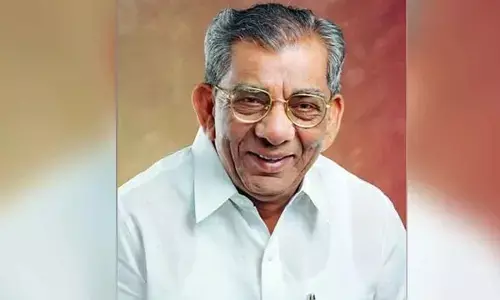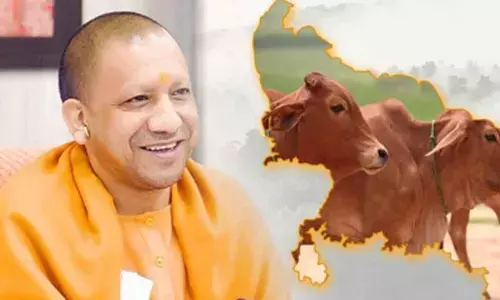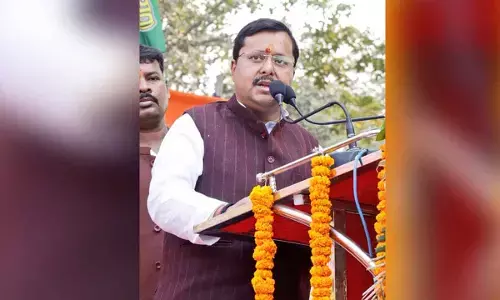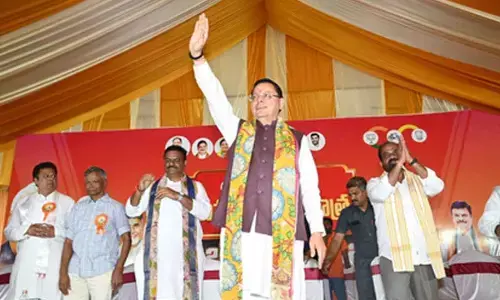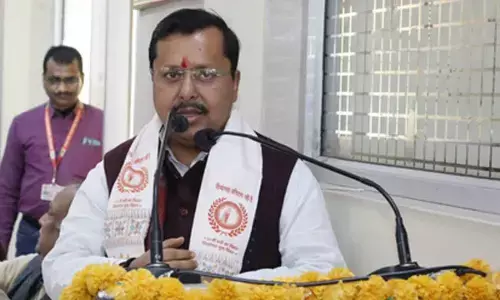Rajya Sabha nod for bill on three central Sanskrit universities
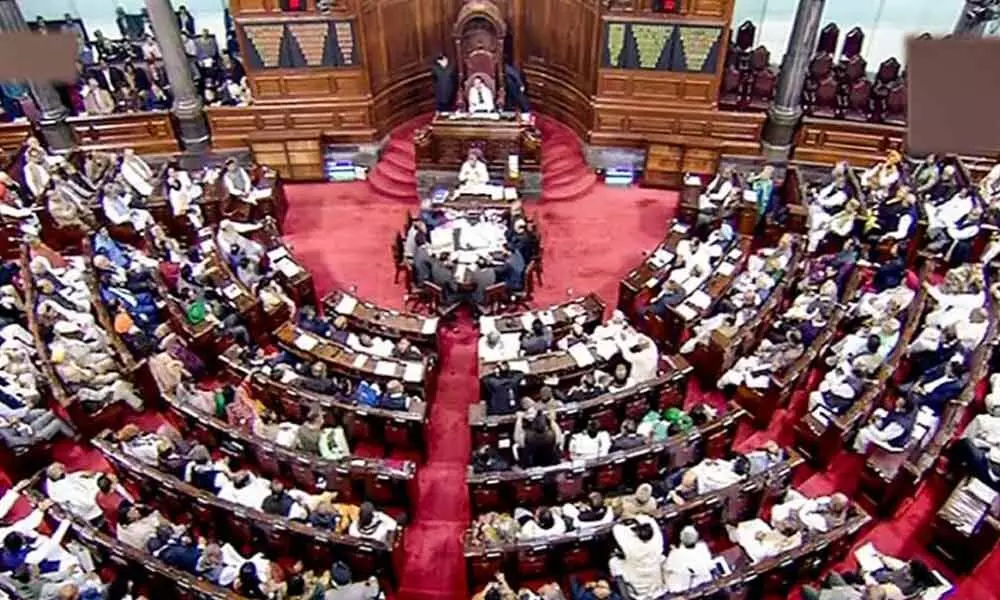 A view of the Rajya Sabha during the Winter Session of Parliament in New Delhi. (File | PTI)
A view of the Rajya Sabha during the Winter Session of Parliament in New Delhi. (File | PTI)DMK members opposed the bill saying it was "against" classical languages like Tamil.
New Delhi: Rajya Sabha on Monday passed a bill to upgrade three deemed Sanskrit universities into central universities after some minor amendments.
The Central Sanskrit Universities Bill, 2019 was passed by voice vote in the Upper House.
It was passed by Lok Sabha in December last year and was introduced in Rajya Sabha on March 2 by Minister for Human Resource Development Ramesh Pokhriyal 'Nishank' Since Rajya Sabha has passed the bill with amendments, it would now go to Lok Sabha again.
The Bill seeks to upgrade three deemed to be universities in Sanskrit -- Rashtriya Sanskrit Sansthan, Sri Lal Bahadur Shastri Rashtriya Sanskrit Vidyapeeth, and Rashtriya Sanskrit Vidyapeeth Tirupati -- into central universities.
Replying to the debate, Pokhriyal said the Modi government is committed to strengthen all Indian languages.
Speaking about the spread of Sanskrit, he said that around five crore students were studying the language in the country itself.
Besides, there were many countries across the world where the language was being taught, he added.
"All languages are important for us. We are committed for the growth of all languages that are spoken in the country," the minister asserted.
The passage of the bill in the Upper House will facilitate the growth of the language, he added.
Cutting across party lines, several members supported the bill during the debate.
Congress MP Jairam Ramesh, Sukhendu Sekhar Roy of AITC and Prashant Nanda of BJD spoke in Sanskrit.
However, DMK members opposed the bill saying it was "against" classical languages like Tamil.
Initiating the debate, Jairam Ramesh said that though he supports the bill as it will help the cause of Sanskrit, which is a scientific language and part of cultural legacy, the government was neglecting other classical languages.
"Sanskrit has always been a monopoly of few and that is a matter of great sadness and tragedy for India.
We have to make this monopoly into a treasure of many and that is what this bill hopes to accomplish," he said.
However, the government is ignoring other classical Indian languages such as Tamil, Telugu, Kannada, Malayalam and Odia which are spoken by millions of people, while Sanskrit is spoken only by hardly 15,000 people in India, he added.
Referring to a reply by the Minister of Culture in Lok Sabha on February 3, 2020, he said in the last three years the Centre has spent Rs 640 on Sanskrit's popularisation.
While it had spent Rs 24 crore on Tamil, Rs 3 crore each on Telugu and Kannada and nil on Malayalam and Odia.
"We are giving greater importance to Sanskrit, which it at the cost of the other Indian regional languages," he said.
The Congress MP also suggested that Sanskrit universities be named after Sanskrit scholars such as Panini.
Supporting the Bill, Sukhendu Sekhar Ray of Trinamool Congress (AITC) spoke in Sanskrit and termed it as "mother language".
Ram Gopal Yadav of SP suggested that there should be a provision for students union in the three universities rather than a student council, in which members were nominated by the faculty.
Prashant Nanda of BJD, who also spoke in Sanskrit, supported the bill said that the language has scientific importance.
Kahkashan Perveen of JD(U) also backed the bill and said that the government should also consider to upgrade the Sanskrit University in Darbhanga, Bihar, which was the second such varsity opened in India in 1961.
L Lakshmikanta Rao of TRS, K K Ragesh of CPI-M and Binoy Viswam of CPI also participated in the debate.
Supporting the bill, V Vijayasai Reddy of YSRCP suggested the government ask MPs to adopt one village in their constituency to promote Sanskrit language.
However, M Shanmugam of DMK opposed the bill saying that it was against classical languages such as Tamil.
Vaiko of DMK also opposed the bill saying: "If this bill is passed then not only South Indian languages but others like Punjabi and Odia will be in jeopardy.
He also said that Sanskrit is a "dead language" and Tamil is the only alive ancient language.
Others members who participated in the bill included Manoj Kr Jha from RJD, N D Gupta of AAP, Ashok Bajpai of BJP, P L Punia of INC, A Navaneethakrishnan of AIDMK, L Hanumanthaiah, Subramanyam Swamy (nominated)and Chhaya Verma of INC.
The Bill will establish and incorporate universities for teaching and research in Sanskrit, to develop all-inclusive Sanskrit promotional activities and to provide for matters connected therewith or incidental thereto, as passed by Lok Sabha, be taken into consideration.
As per the proposed legislation, Sanskrit Central Universities will be set up by converting three deemed Sanskrit universities, presently functioning in the country.
The three deemed universities are Rashtriya Sanskrit Sansthan and Shri Lal Bahadur Shastri Rashtriya Sanskrit Vidyapeeth in New Delhi, and the Rashtriya Sanskrit Vidyapeeth in Tirupati.
The Bill was later passed by the Upper House with some amendments and will now go to Lok Sabha again.








